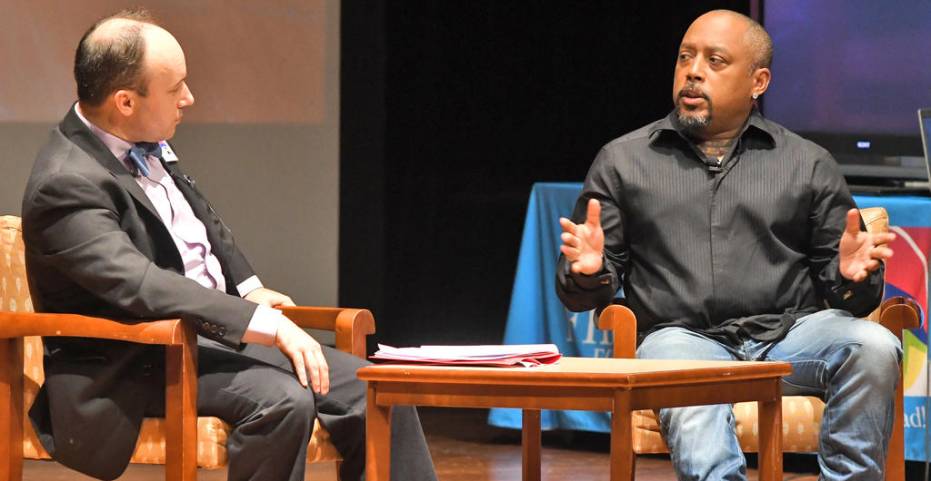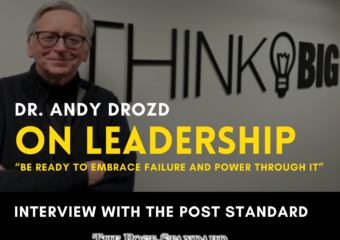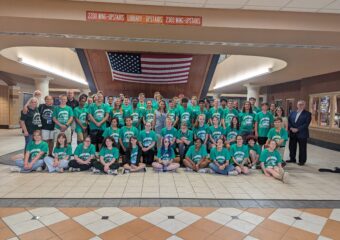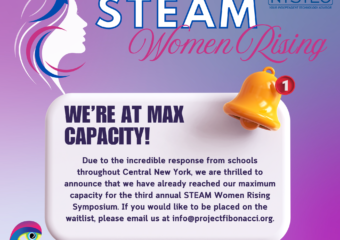
Results of the second annual week-long Project Fibonacci STEAM (science, technology, engineering, arts, math) Conference, which concluded Saturday, drew an enthusiastic response today from one of its lead organizers.
“It was spectacular,” said Dan Kostelec, STEAM outreach coordinator for Project Fibonacci and Rome-based ANDRO Computational Solutions, which spearheaded the STEAM Conference youth leadership program attended by 106 students ages 16-22.
“A lot of times, for a second-year event…it can hit a bit of a…sophomore slump,” but the conference’s second year “really exceeded…expectations,” Kostelec commented. He added “the kids all seemed to love it,” noting many who also attended the first conference “want to come back for next year….They want to do a ‘three-peat’….They feel they’re getting quite a lot out of it.”
The students, from across the state plus one from France, heard from several celebrity speakers appearing at Rome Free Academy and The Beeches, while the students also participated in various workshops and field trips. Project Fibonacci was founded by Andrew Drozd, ANDRO president and chief scientist.
Next year’s Project Fibonacci STEAM Conference is scheduled for Sunday, July 22 through Saturday, July 28, Kostelec said. Organizers are already considering some celebrity speakers, he added.
This year’s speakers “focused a lot on entrepreneurship,” Kostelec observed, and next year may do so again or it could be a “different focus.” The speakers were “very well received,” he said of the appearances which attracted general attendees from the public in addition to participating students. Among some of them were Daymond John, founder of the FUBU clothing line and a co-star of ABC’s show, “Shark Tank;” physicist and author Michio Kaku, whom Kostelec said drew an especially large audience; and Deborah Berebichez, physicist and host of the Discovery Channel’s “Outrageous Acts of Science.”
Organizers in the next couple of weeks are “going to be going over” plans for next year’s conference, said Kostelec. Among possible changes are to seek a sponsor to fund costs for books and DVDs featuring keynote speakers, he remarked.
About half of this year’s attending students had scholarships through sponsoring businesses or other organizations, said Kostelec, while about a quarter were sponsored by schools and the remainder paid their own way.
Organizers hope the Project Fibonacci concept and its focus on STEAM-related education can be something that will “really be catching on in the near future” including involving more of the community, Kostelec said. He cited its benefits for helping to boost the area economy and job opportunities that become available.



